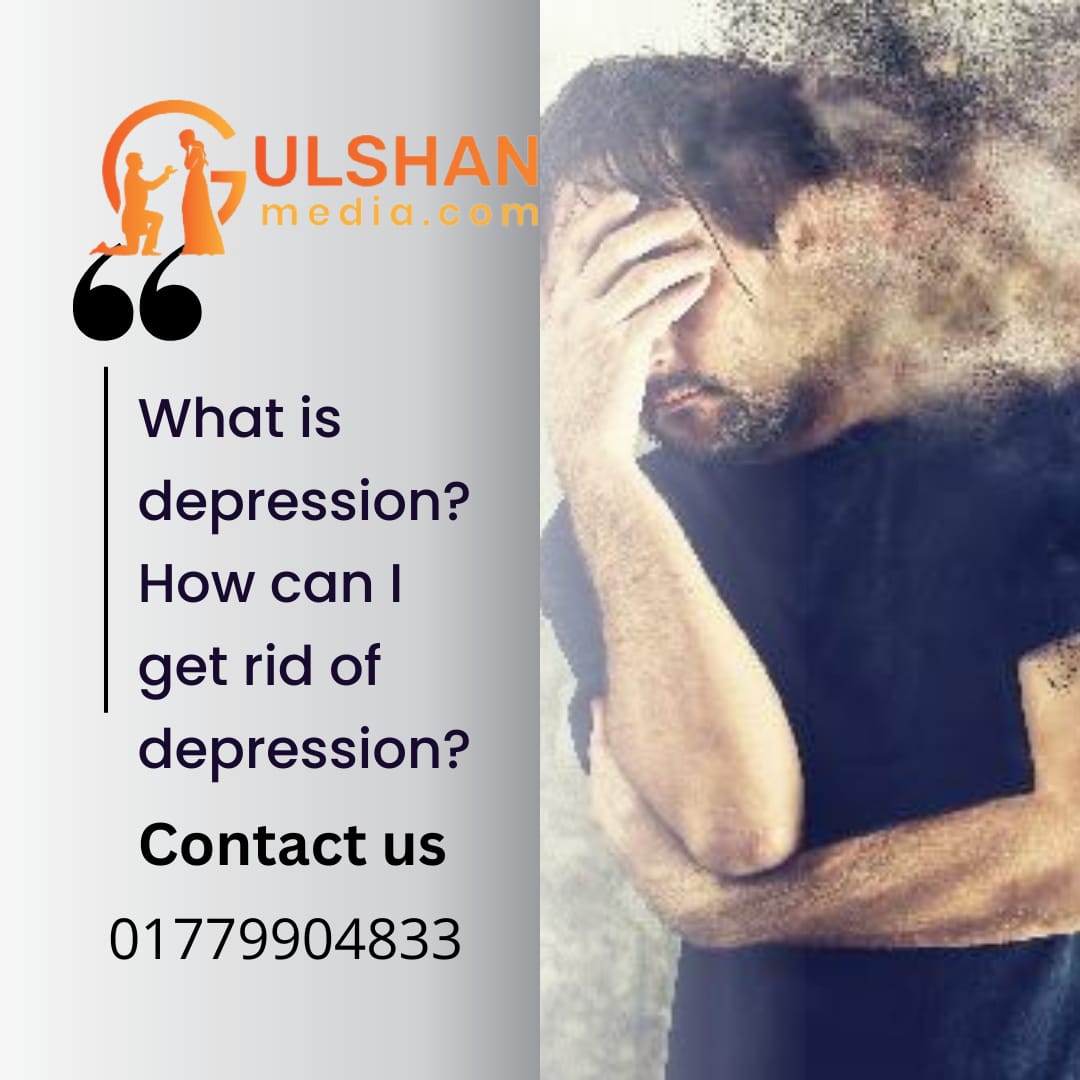What is depression? 023
What is depression? 023

Introduction
Depression is a complex mental health condition that affects millions of individuals worldwide. It goes beyond occasional feelings of sadness or grief, encompassing a prolonged state of emotional and physical distress. This comprehensive overview aims to delve into the intricacies of depression, exploring its causes, symptoms, diagnosis, and treatment options. By shedding light on this prevalent condition, we hope to foster understanding, reduce stigma, and encourage support for those grappling with depression.
Definition and Types of Depression
Depression, also referred to as major depressive disorder (MDD), is a serious mental illness characterized by persistent feelings of sadness, hopelessness, and a lack of interest or pleasure in previously enjoyed activities. It can affect individuals of all ages, genders, and backgrounds. Depressive disorders manifest in various forms, including:
- Major Depressive Disorder (MDD): The most common form of depression, MDD entails experiencing depressive symptoms for at least two weeks or longer.
- Persistent Depressive Disorder (PDD): PDD involves chronic depression that persists for two years or more, with milder symptoms that may fluctuate.
- Bipolar Disorder: This condition combines depressive episodes with manic or hypomanic episodes, characterized by elevated mood, increased energy, and impulsive behavior.
Causes and Risk Factors
Depression arises from a complex interplay of genetic, biological, environmental, and psychological factors. While the exact causes remain unclear, several key contributors have been identified:
- Biological Factors: Imbalances in brain chemicals (neurotransmitters) such as serotonin, norepinephrine, and dopamine can impact mood regulation, contributing to depression.
- Genetic Predisposition: A family history of depression increases the likelihood of developing the condition, suggesting a genetic vulnerability.
- Environmental Factors: Traumatic life events, such as loss, abuse, or significant stressors, can trigger or exacerbate depression. Other factors like chronic illnesses, substance abuse, or social isolation also play a role.
- Psychological Factors: Certain personality traits, such as low self-esteem, pessimism, or perfectionism, can make individuals more susceptible to depression.
Signs and Symptoms:
Depression manifests in a wide range of symptoms that affect an individual’s emotional, cognitive, and physical well-being. These may include:
- Persistent feelings of sadness, hopelessness, or emptiness
- Loss of interest or pleasure in once-enjoyable activities
- Fatigue, lack of energy, or excessive tiredness
- Changes in appetite or weight (increase or decrease)
- Sleep disturbances (insomnia or excessive sleep)
- Difficulty concentrating, making decisions, or remembering details
- Feelings of guilt, worthlessness, or excessive self-blame
- Restlessness, irritability, or agitation
- Recurrent thoughts of death or suicide
Diagnosis and Treatment
100:
- Psychotherapy: Cognitive-behavioral therapy (CBT), interpersonal therapy (IPT), and psychodynamic therapy are effective in addressing negative thought patterns, improving coping mechanisms, and exploring underlying emotional issues.
- Medications: Antidepressant medications, such as selective serotonin reuptake inhibitors (SSRIs), serotonin-norepinephrine reuptake inhibitors (SNRIs), or tricyclic antidepressants (TCAs), may be prescribed to alleviate symptoms. It’s important to consult a psychiatrist for proper evaluation and medication management.
- Lifestyle Modifications: Engaging in regular exercise, maintaining a healthy diet, ensuring sufficient sleep, and establishing a strong support system are essential components of managing depression. Alternative therapies like mindfulness, yoga, and meditation can also complement treatment.
Conclusion
Depression is a multifaceted mental health condition that affects individuals on various levels. By understanding its causes, recognizing its symptoms, and promoting compassionate care, we can work toward creating a supportive environment that helps individuals navigate their journey to recovery.
How can I get rid of depression?
Introduction
Dealing with depression can be challenging, but it is important to remember that there is hope and help available. While there is no one-size-fits-all solution, there are various strategies you can employ to manage and alleviate symptoms of depression. This comprehensive guide aims to provide you with practical tips and techniques to help you on your journey toward healing and recovery. It is essential to remember that seeking professional support is crucial when dealing with depression, and the strategies outlined here should complement, not replace, the guidance of a mental health professional.
Depression is a common but serious condition that can significantly impact your daily life. While there’s no single solution to get rid of it completely, there are effective treatments and strategies that can help you manage it and feel better. Here are some approaches to consider:
Seeking Professional Help:
This is often the first and most crucial step. A therapist or mental health professional can diagnose your depression and recommend a treatment plan tailored to your specific needs. Here are some treatment options they might recommend:
- Therapy: Cognitive behavioral therapy (CBT) is a particularly effective form of therapy for depression. It helps you identify and change negative thought patterns that contribute to depression.
- Medication: Antidepressants can help regulate brain chemicals that play a role in mood regulation.
Lifestyle Changes:
Certain lifestyle changes can significantly improve your mood and overall well-being:
- Regular Exercise: Aim for at least 30 minutes of moderate-intensity exercise most days of the week. Physical activity releases endorphins, natural mood elevators.
- Healthy Diet: Eating a balanced diet rich in fruits, vegetables, and whole grains can improve your energy levels and mood.
- Quality Sleep: Most adults need around 7-8 hours of sleep per night. Prioritize good sleep hygiene practices for restful sleep.
- Social Connection: Social isolation can worsen depression. Make time for activities you enjoy with loved ones or join a support group.
- Stress Management: Chronic stress can exacerbate depression. Practice relaxation techniques like yoga, meditation, or deep breathing to manage stress.
Self-Care Practices:
- Engage in Activities You Enjoy: Make time for hobbies or activities that bring you pleasure and relaxation.
- Practice Mindfulness: Mindfulness exercises can help you stay present in the moment and reduce negative rumination.
- Set Realistic Goals: Break down large goals into smaller, achievable steps to avoid feeling overwhelmed.
- Positive Self-Talk: Challenge negative thoughts about yourself and replace them with more positive affirmations.
- Seek Professional Help The first step in tackling depression is reaching out to a mental health professional. A therapist or psychiatrist can provide an accurate diagnosis, offer tailored treatment options, and guide you through the healing process. They may recommend therapies such as cognitive-behavioral therapy (CBT), interpersonal therapy (IPT), or medication based on your individual needs.
- Build a Support Network Surrounding yourself with a supportive network of friends, family, and loved ones is crucial in managing depression. Opening up about your feelings and experiences can help alleviate the sense of isolation that often accompanies depression. Consider joining support groups or seeking online communities where you can connect with others who have similar experiences. Sharing your journey with understanding individuals can provide comfort, encouragement, and valuable coping strategies.
- Prioritize Self-Care Taking care of yourself is vital when combating depression. Make self-care a priority by engaging in activities that bring you joy and relaxation. Focus on activities that promote physical and mental well-being, such as regular exercise, practicing mindfulness or meditation, getting enough sleep, and maintaining a balanced diet. Establishing a routine can provide structure and a sense of purpose, which can be particularly helpful during periods of low motivation.
- Challenge Negative Thoughts Depression often accompanies a negative thinking pattern that reinforces feelings of hopelessness and self-doubt. Practice recognizing negative thoughts and challenging them with more realistic and positive alternatives. Cognitive restructuring techniques, often employed in cognitive-behavioral therapy (CBT), can help reframe negative thoughts and develop a more balanced perspective.
- Engage in Meaningful Activities Depression can lead to a loss of interest in activities once enjoyed. While motivation may be low, make an effort to engage in activities that bring you a sense of purpose and fulfillment. Start small and gradually increase your involvement. It could be pursuing a hobby, volunteering, or setting achievable goals. Meaningful activities can provide a sense of accomplishment, improve mood, and increase overall satisfaction with life.
- Practice Stress Management Stress can exacerbate symptoms of depression. Developing effective stress management techniques can help alleviate its impact. Experiment with stress reduction techniques such as deep breathing exercises, progressive muscle relaxation, journaling, or engaging in creative outlets. Finding healthy ways to cope with stress can significantly improve your overall well-being.
- Establish Healthy Habits Implementing healthy lifestyle habits can positively impact your mental health. Ensure you have a consistent sleep routine, aim for regular exercise, and maintain a balanced diet. Engaging in physical activity releases endorphins, which can boost mood, while a nutritious diet provides essential nutrients for optimal brain function. Avoid excessive alcohol or drug use, as they can worsen depressive symptoms.
- Set Realistic Goals Setting realistic goals can help you regain a sense of control and achievement. Start by breaking down larger tasks into smaller, manageable steps. Celebrate each accomplishment, no matter how small, as it contributes to your progress. Be patient and compassionate with yourself, understanding that recovery takes time and setbacks are a natural part of the process.
- Explore Alternative Therapies In addition to traditional therapies, alternative approaches can complement your treatment plan. Some individuals find relief in practices like acupuncture, yoga, meditation, or art therapy. While their effectiveness may vary from person to person, exploring these options under professional guidance can offer new avenues for healing.
Conclusion
Overcoming depression is a journey that requires a combination of strategies tailored to your unique needs. By seeking professional help, building a support network, prioritizing self-care, challenging negative thoughts, and adopting healthy habits, you can take significant steps toward managing and eventually overcoming depression. Remember, you are not alone, and with time and support, healing is possible.
“বিয়ে সংক্রান্ত যেকোনো তথ্য ,সেবা এবং পরামর্শ পেতে যোগাযোগ করুন গুলশান মিডিয়ার সাথ। ” কল করুন:01779940833
Email: gulshanmedia2@gmail.com









Thanks for the good writeup. It in reality was once a entertainment account it.
Look complicated to more added agreeable from you!
However, how could we keep in touch?
Thank you for your sharing. I am worried that I lack creative ideas. It is your article that makes me full of hope. Thank you. But, I have a question, can you help me?